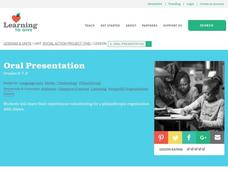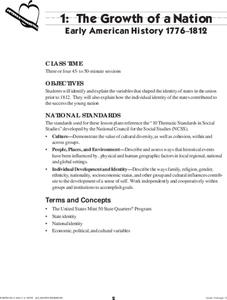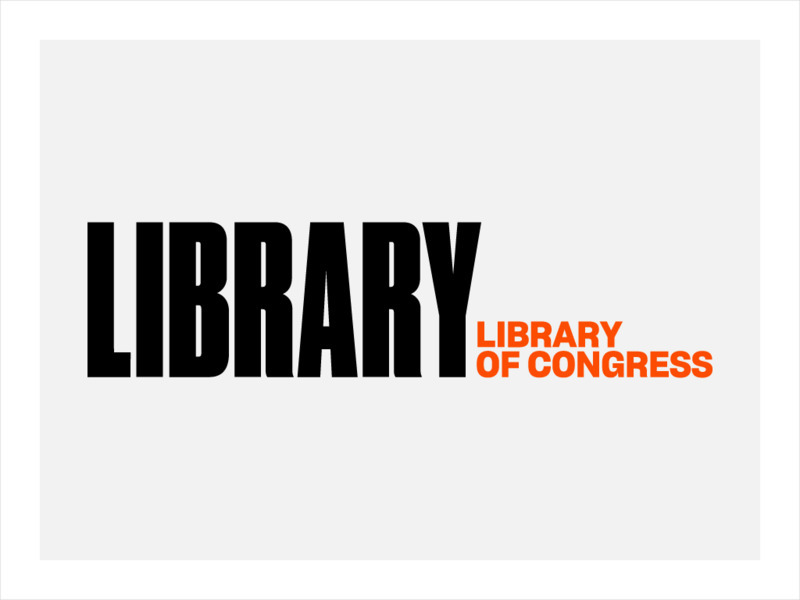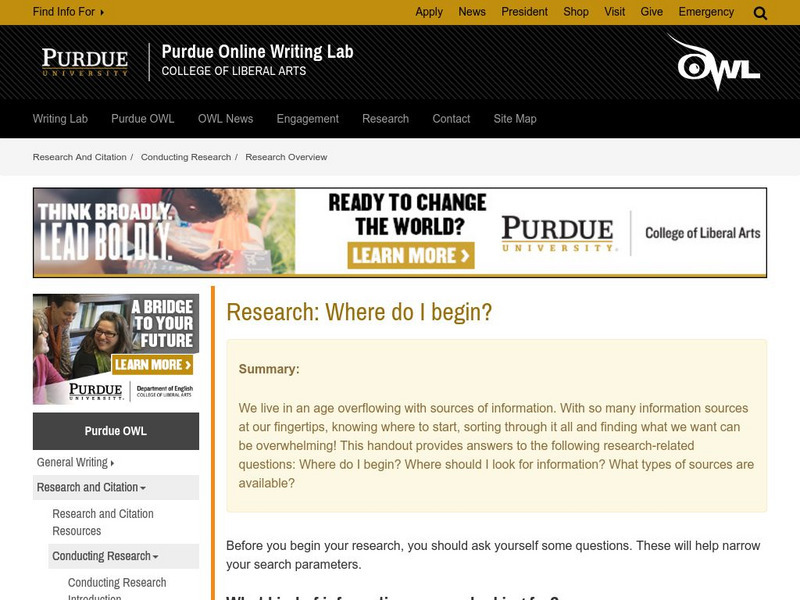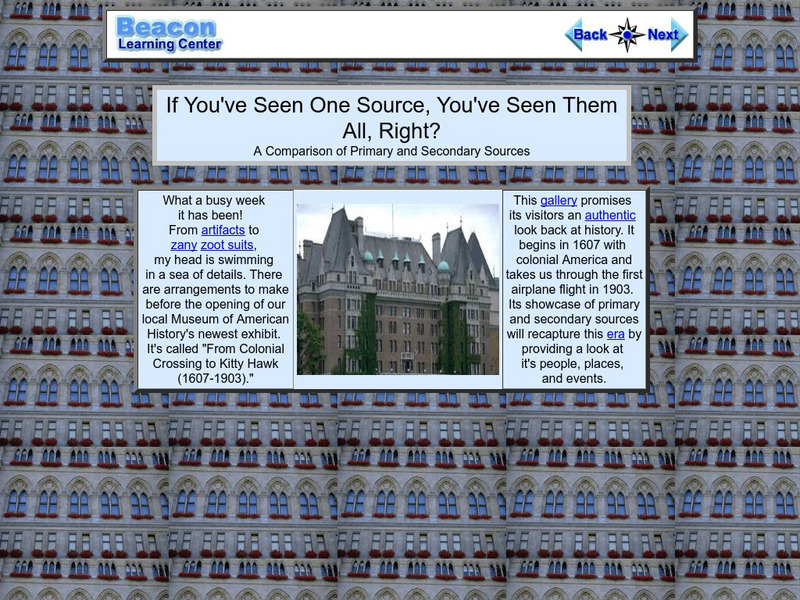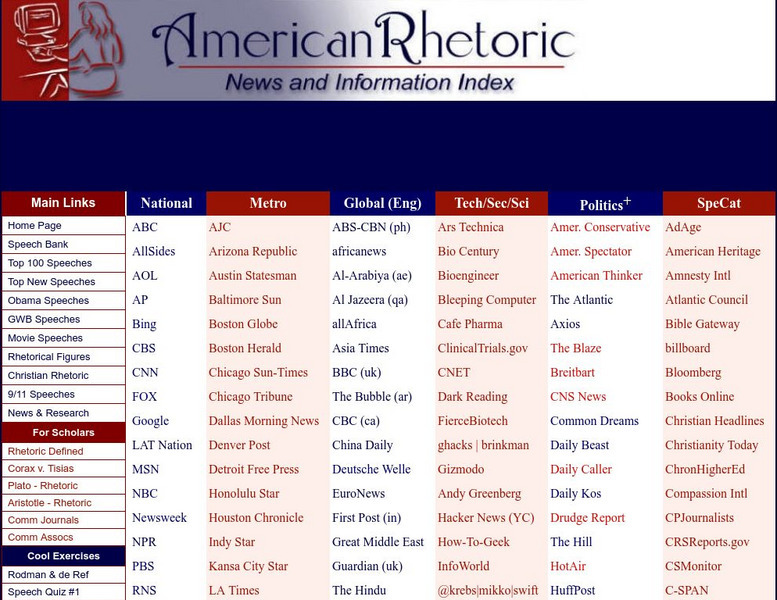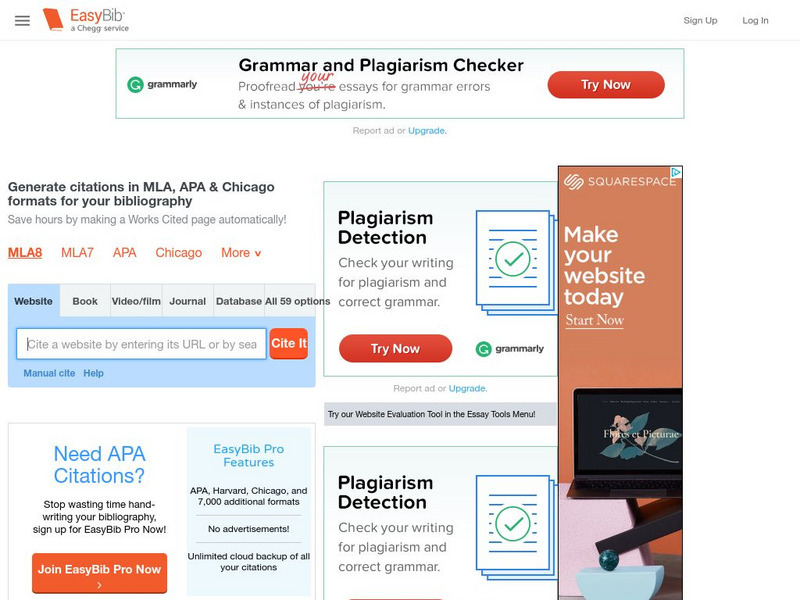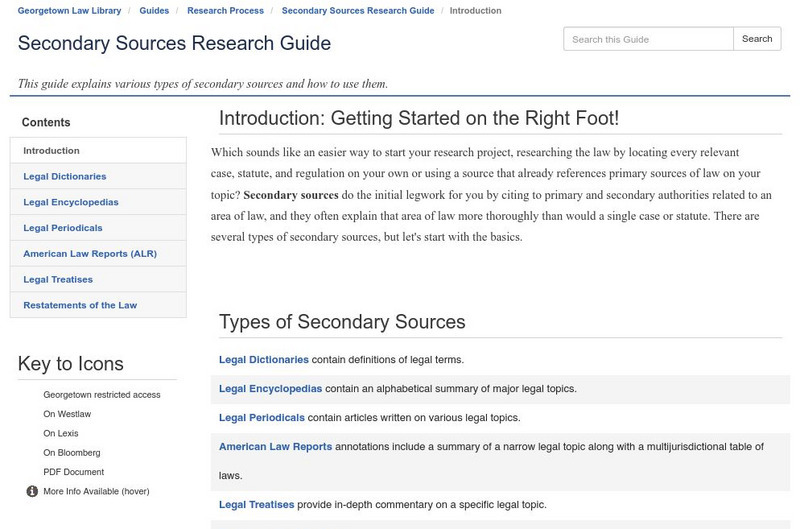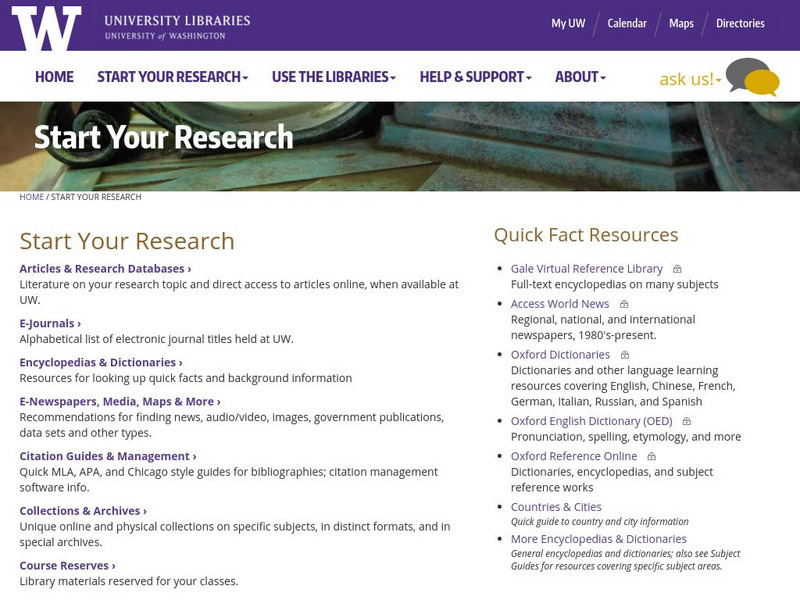Student Handouts
Graphic Organizer: Reference Citations
Pupils practice researching sources and logging citation information with this graphic organizer. After posing a general topic, groups of students are asked to devise general questions about that topic, and to research sources...
Curated OER
Oral Presentation
Practice public speaking in this oral presentation lesson. Middle schoolers list the characteristics of a powerful speaker. They watch a video of two speakers, compare them and discuss the qualities of a good speech. Afterwards, they...
Curated OER
Fruit or Vegetable?
Watermelon is a vegetable? A tomato is a fruit? Believe it or not, this debate is decades old. Groups examine rulings by the US Supreme Court, the USDA, and state statutes before developing their own criteria to use when labeling...
Curated OER
Harvest the Wind
Wind is a natural resource available around the world. Help your pupils appreciate the power and importance of wind by researching wind farms, making pinwheels, and designing windmills.
US Mint
The Growth of a Nation
Young historians explore the identity of the early United States in this four-part lesson series. Working in groups of three, students research the political, economic, and cultural atmosphere of each member of the...
Library of Congress
Loc: For Teachers: Classroom Materials Using Primary Sources
This excellent teacher resource features lessons that use primary source documents in an engaging way. Included are lesson plans created by teachers, themed resources, primary source sets, presentations and activities, and collections...
Library of Congress
Loc: Teachers: Personal Stories and Primary Sources
Students will explore the value of personal stories and first-hand accounts when exploring history, in this case, the events of the early twentieth century, which included World War I and the Great Depression. Through this five-unit...
Online Writing Lab at Purdue University
Purdue University Owl: Research: Where Do I Begin?
The 21st century has made access to information easier than ever. Purdue offers tips on how to narrow your research field when trying to sort through this information. Click on the links in the sidebar to learn about the different types...
Beacon Learning Center
Beacon Learning Center: If You've Seen One Source, You've Seen Them All. Right?
This is a tutorial teaching the difference between primary and secondary research sources. It provides specific examples and asks students to answer questions along the way. Java is required.
American Rhetoric
American Rhetoric: News and Information Index
This website is a news and information index that offers links to news sources, newspapers, magazines and journals, search engines, polling data, legal resources, and citation guides.
Polk Brothers Foundation Center for Urban Education at DePaul University
Depaul University: Center for Urban Education: Guide/assess Nonfiction Reading
This site contains 47 one-page guided writing and reading guides and assessments.The reproducibles are copyrighted materials but may be copied and used for educational purposes.
Beacon Learning Center
Beacon Learning Center: Bibliography Blunders
This tutorial focuses on how to complete a bibliography using MLA style. It gives specific directions and examples for various types of entries such as magazines, books, encyclopedias, and web pages. It also gives specifics for the...
FNO Press
Fno.org: The New Plagiarism
Subtitled "Seven Antidotes to Prevent Highway Robbery in the Electronic Age," this article is particularly addressed to teachers who assign research projects.
Other
Easy Bib
This citation site provides a means for formatting bibliographical information via MLA, APA, Chicago, and other referencing methods. Students can also find tools for note-taking and research on EasyBib.
Georgetown University
Legal Research Guides: Secondary Sources Research Guide
This tutorial discusses how to perform legal research in a library--from locating relevant cases, statutes, and regulation to using secondary sources that include Periodical Indexes, Treatises, Legal Encyclopedias, and Annotated Law...
Sophia Learning
Sophia: Research Sources: Websites
This slideshow lesson focuses on the use of websites for research sources. It gives the pros and cons to using websites as sources and discusses the need to evaluate websites and what to look for.
Sophia Learning
Sophia: Evaluating Digital Information: Tutorial
In this slideshow tutorial, students will review how to evaluate digital sources. During the digital evaluation process, students are directed to analyze the following: authority, accuracy, objectivity, and currency. After the tutorial,...
Sophia Learning
Sophia: Mla Bibliographies
This tutorial focuses on MLA style bibliographies; it offers a video lesson defining bibliography, explaining the difference between bibliography and works cited, giving general format information, listing what is included, and providing...
Sophia Learning
Sophia: Research Sources
This slideshow lesson focuses on research sources by listing 10 types of sources: books, periodicals/magazines, newspaper articles, scholarly articles, databases, reviews, interviews, lectures, media (film, television), and websites. It...
Other
Bib Me: Citation Guides
Need to make a bibliography but don't know how? This site formats your bibliography for you and saves you the hassle. Choose your citation standard (APA, MLA, Chicago) and your reference type, and input your source information. It will...
University of California
Uc Irvine: Distinguishing Between Primary & Secondary Sources
This site has an online quiz to test your knowledge of primary and secondary sources.
Other
University of Washington Libraries: Starting Research
If you need help knowing where to start your research, or if you're a teacher looking for a way to help students understand the research process, this resource is terrific. Interactive tutorials on a number of topics offer review quizzes...
Virtual Salt
Virtual Salt: Evaluating Internet Research Resources
This site by Virtual Salt offers a great deal of information on evaluating internet sources. Gives tips on what to look for when screening information for usefulness and reliability.
Annenberg Foundation
Annenberg Learner: Interactives: Historical and Cultural Contexts
This interesting interactive website explains kinds of primary sources and gives you the chance to identify them in some games.



